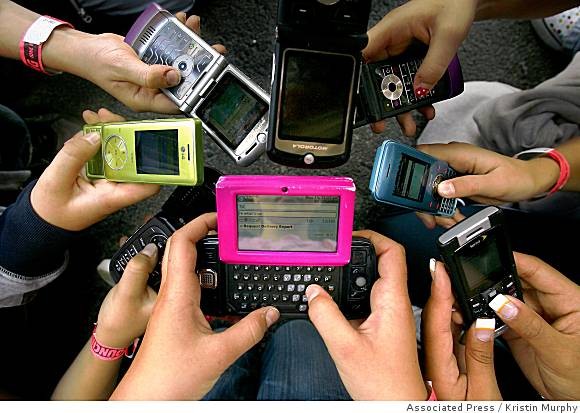Access Excess: Always Wired Makes Us Tired and Less Productive

Paradox, double-edged sword, blessing and curse combined, mobile devices have made our lives easier and more stressful at the same time. I remember the feeling of relief the day I finally got my calendar synched on my work/home computer, my laptop and my smartphone. Now I could be in a conversation with someone at a conference and set an appointment seamlessly. It helped tremendously using a GPS navigating app to help find a tricky destination. I absolutely love using the travel app “Tripit” to track all my business travel arrangements. Connecting with others is easier than everWhile we can benefit from technology in so many ways, we are also seeing a “dark side” rising far too fast. The accessible anytime and anywhere nature of smartphones, wi-fi enabled tablets, etc. is causing a shift in workplace norms and, sadly, a shift in in the quality of our personal lives as well. A recent cover story in USA Today reveals how the so-called digital lifestyle and work-style may be seriously damaging our health and well-being. “Nearly two-thirds of full-time workers own smartphones, up from 48% just two years ago, according to the Pew Research Center. One-third own a tablet, up from 12%. The exploding use of these devices — and connected employees never calling it a day — has created a workplace domino effect: If one person answers the boss's e-mail after hours, others feel compelled to as well.”
 When people are under stress for performance it is so easy to create a sense of digital vigilance that never lets down. Our notification alert signal is on full volume 24/7 so we don’t miss that opportunity that just might be calling. As we get more anxious it becomes more common to even get downright obsessive about our need to be accessible.
When people are under stress for performance it is so easy to create a sense of digital vigilance that never lets down. Our notification alert signal is on full volume 24/7 so we don’t miss that opportunity that just might be calling. As we get more anxious it becomes more common to even get downright obsessive about our need to be accessible.
Some companies are realizing the price they pay in stress and health and are instituting policies to “leave it at the office”. The need for some ground rules is becoming apparent as the demands on the digitally connected worker increase. “Under the Fair Labor Standards Act, employees entitled to overtime pay must receive it when they work beyond a maximum number of hours, such as a 40-hour workweek. The constant technological tether to work is testing what constitutes the standard workweek, and lawsuits are challenging this new world.” Salaried employees have no such limits.
The self-employed have to set their own limits and often don’t. Fear of missing that opportunity for a sale by not responding at light speed keeps the smartphone charged and within easy grasp. The infectious sense of urgency in society is hard to be immune to.
 The whistle never blows in this world of Access Excess. There are no natural breaks. Time off has disappeared. This of course runs in total opposition to how our mind/body system works. We are wired to deal with stress, but can survive only if we also have what the authors of The Way We’re Working Isn’t Working call “sufficient volume and intensity of recovery”.
The whistle never blows in this world of Access Excess. There are no natural breaks. Time off has disappeared. This of course runs in total opposition to how our mind/body system works. We are wired to deal with stress, but can survive only if we also have what the authors of The Way We’re Working Isn’t Working call “sufficient volume and intensity of recovery”.
Wellness coaching clients almost always list stress as a barrier to them living a healthier life in almost all dimensions of wellness. Coaches can help their clients to consciously work on their fears, communicate and create agreements at work that are healthier. We can also help our clients to determine if their work environment can be changed for the better or if looking for work in a healthier environment is final solution. We can help our clients create experiments to help them see just how digitally healthy they really can be by being less “wired”. We can help them increase awareness of how much they are allowing fear and anxiety to rule them and work consciously on this issue.
Boundary setting is so much harder when it insidiously has become weakened by cultural norms. “Access Excess” has become a norm that no one ever agreed to. Let’s create agreements at work and at home that allow us to make times to be “unplugged” and healthier!
Question? Is the man in the picture below able to be free to be at this relaxing lake because he can still be connected, or is he there and stressed because he is allowing himself to be connected?









Only registered and logged in readers can leave comments.